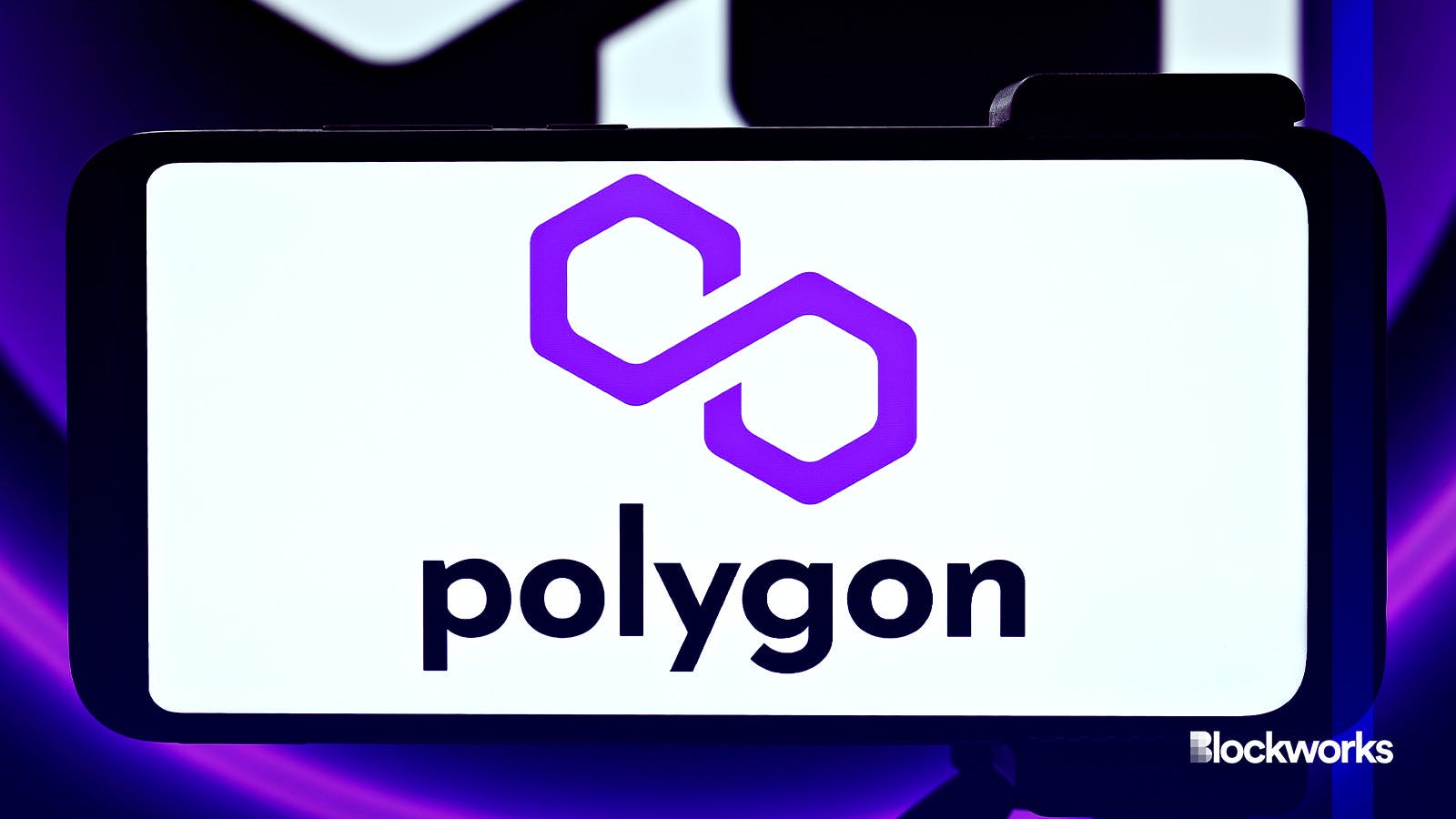Polygon’s new zk-powered token is live on Ethereum mainnet
The transition from MATIC to POL is part of the Polygon ecosystem’s 2.0 plans

photo_gonzo/Shutterstock modified by Blockworks
The new native token of Ethereum scaling solution Polygon has gone live on Ethereum mainnet.
Polygon first revealed its intention to revamp its native MATIC token in July this year. This new token is designed to be “hyper-generational” and support a vast ecosystem of various zero knowledge layer-2 chains through a native re-staking protocol.
This means that POL holders will be able to use the token to validate various chains across Polygon, including Polygon PoS and Polygon zkEVM.
Polygon PoS is currently one of the largest blockchain ecosystems today. It has a $758.28 million total valued locked (TVL) and a stablecoin market cap of almost $1.7 billion, according to information available on DeFiLlama. There are 480 dapps currently deployed on the network.
The transition from Polygon (MATIC) to POL is part of Polygon’s 2.0 plans, where the project aims to become the “value layer” of the internet.
Read more: Polygon’s MATIC is getting a makeover: Founders release white paper for POL
A Polygon representative did not respond to a request for comment by press time.
Since the announcement of the news on X, Polygon’s existing native token, MATIC, has seen its price dip by 0.84%. POL, which has just launched, has seen its price increase to 2.6%, according to information available on CoinGecko.
At the time of writing, the POL token has seen a 24-hour trading volume of $97,795 and a fully diluted valuation of over $6.4 billion.
Users will have up to four years to transition their tokens from MATIC to POL, though the implementation has no specific deadline. Users who wish to transfer their tokens can do so by sending MATIC tokens to a designated POL smart contract that will automatically convert the deposited tokens.
Updated Oct. 26, 2023 at 10:05 am ET: Added quote from Polygon PR representative stating that POL is designed to be “hyper-generational.”
Updated Oct. 25, 2023 at 3:59 pm ET: Clarified context provided by Polygon PR representative. A previous version of this article described POL as “zk-based” instead of “zk powered.”
Get the news in your inbox. Explore Blockworks newsletters:
- The Breakdown: Decoding crypto and the markets. Daily.
- 0xResearch: Alpha in your inbox. Think like an analyst.






